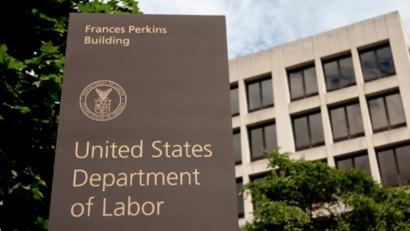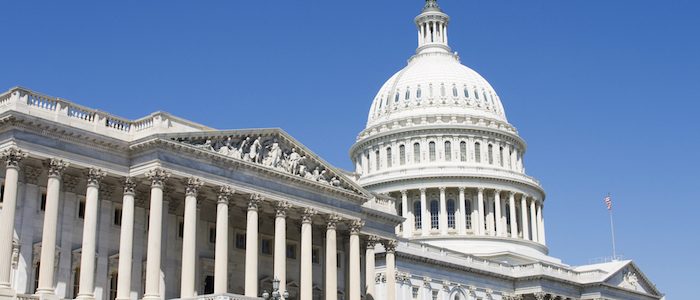Who Is Winning With the Fiduciary Rule? Wall Street
Who Is Winning With the Fiduciary Rule? Wall Street

For now, the rule is setting money in motion
By Lisa Beilfuss – The Wall Street Journal – August 11, 2017
The brokerage business fiercely fought the new retirement advice rule. But so far for Wall Street, it has been a gift.
The rule requires brokers to act in the best interests of retirement savers, rather than sell products that are merely suitable but could make brokers more money. Financial firms decried the restriction, which began to take effect in June, as limiting consumer choice while raising their compliance costs and potential liability.
But adherence is proving a positive. Firms are pushing customers toward accounts that charge an annual fee on their assets, rather than commissions which can violate the rule, and such fee-based accounts have long been more lucrative for the industry. In earnings calls, executives are citing the Department of Labor rule, known varyingly as the DOL or fiduciary rule, as a boon.
“Primarily because of DOL” and market appreciation, assets are growing in fee-based accounts, said Stifel Financial Corp. Chief Executive Ronald Kruszewski, on a call in July. In an interview, he said such accounts can be twice as costly for clients.
Morningstar Inc. has said $3 trillion in tax-advantaged retirement savings are at stake, but some firms say even more is in play, as policies and marketing filter to nonretirement accounts.
For some consumers, a fee-based account could make economic sense. Such accounts can also come with more services, and they theoretically align a broker’s interest with that of the client. Some customers are negotiating discounts on the fees they pay, and some are moving to lower-cost firms, data suggests and industry executives say.
“Whether it’s in clients’ best interest is unclear,” said Steven Chubak, an analyst at Nomura Instinet. But the fiduciary rule is ”incentivizing firms to accelerate conversions“ to fees from commissions, he said, and “certainly the amount charged on a fee-based account versus a [commission-based] brokerage account is higher.” The push is speeding up an industry trend toward fees, which offer more predictable revenue that commission-based accounts.
“They are crying crocodile tears,” said Phyllis Borzi, a former Obama administration official who was an architect of the rule, referring to complaints from financial firms on the rule. That administration had said conflicted advice was costing individuals $17 billion a year and 1% in annual returns, figures that critics dispute.
The full effect of the rule remains to be seen. It has only partially gone into effect, with the Trump administration considering significant changes, including adjustments designed to lower compliance costs. Earlier this week, the Labor Department proposed delaying the rule’s compliance deadline by 18 months, a move that experts say suggests revisions are in the offing.
Even some benefiting from it still fault it, including Mr. Kruszewski from Stifel, whose business is largely based on commissions and who has said the rule limits choice.
For now, the rule is setting money in motion.
Bank of America Corp.’s Merrill Lynch has embraced the rule, even running an ad campaign around the idea of fiduciary advice. The firm, which for years has promoted fee-based accounts, last year gave its more than 14,000 brokers more flexibility to cut fees for clients moved onto its advisory platform without a reduction in their own pay. A big investment in adviser technology several years ago has aided the process by making it easier for advisers to convert brokerage accounts to fee-generating advisory accounts.
At Bank of America’s global wealth unit, which includes Merrill Lynch, fee-based assets rose 19% from a year earlier to $991 billion in the second quarter, or to 38% of client assets. More than two-thirds of Merrill’s advisers now have at least half of their client assets under a fee-based relationship, the firm said. The firm is also moving some clients to its online, commission-based “Merrill Edge” platform.
Morgan Stanley , meanwhile, has taken a different tack. Unlike Merrill, which has largely eliminated commissions in retirement accounts, Morgan Stanley has lowered commission costs to aid compliance with the regulation’s “reasonable compensation” standard. It, too, is rolling out a new computer-driven “robo” advisory tool.
For Morgan Stanley, fee-based assets grew 17% from a year earlier to $962 billion in the quarter, representing 43% of overall money in the wealth unit. On Morgan Stanley’s earnings call in July, finance chief Jonathan Pruzan credited the rule in part for gains in fee-based assets. “The Department of Labor’s fiduciary rule has contributed to these fee-based flows,” he said, and “revenues continue to grow with fee-based assets.”
Observers also note that market performance has helped drive assets higher, regardless of account type.
Discount brokers, which traditionally have catered to investors seeking to manage their own investment accounts and pay per transaction, also may gain business.
TD Ameritrade Holding Corp. said net new client assets in the latest period climbed to a record $22 billion from $13.6 billion a year ago. “The DOL fiduciary rule is driving a lot of momentum,” said Chief Executive Tim Hockey.
At Charles Schwab & Co., clients in the first half of the year brought roughly $2 to Schwab for every $1 that they moved from Schwab to a competitor, including traditional brokerage firms, the company has said. In dollar terms, that is about an 86% improvement from a year earlier. In the latest quarter, Schwab’s new retail brokerage accounts climbed 36% from a year earlier.
The fiduciary rule also is supporting the shift to lower-cost index funds that seek to match market moves instead of beat them, observers say, due to the rule’s requirement that brokers justify an investment’s costs.
Laurence Fink, chief executive of indexing giant BlackRock Inc., on the most-recent earnings call attributed “accelerated” flows partly to the fiduciary rule.
Other changes stemming from the fiduciary rule could hurt over the longer term. Aside from compliance costs and increased potential liability, products such as higher-cost mutual funds face pressure from lower-cost passively managed funds, said Devin Ryan, a JMP Securities analyst. The move away from such products could bring down the profitability of fee-based accounts over time, he said.
For now, though, the growth in these accounts have been another positive for Wall Street’s advisory businesses.
“The wealth-management business is almost like a yield stock,” James Gorman, Morgan Stanley’s chief executive, said on the firm’s latest earnings call. “So you can imagine the dividend coming out of wealth-management earnings.”
https://www.wsj.com/articles/who-is-winning-with-the-fiduciary-rule-wall-street-1502443804







